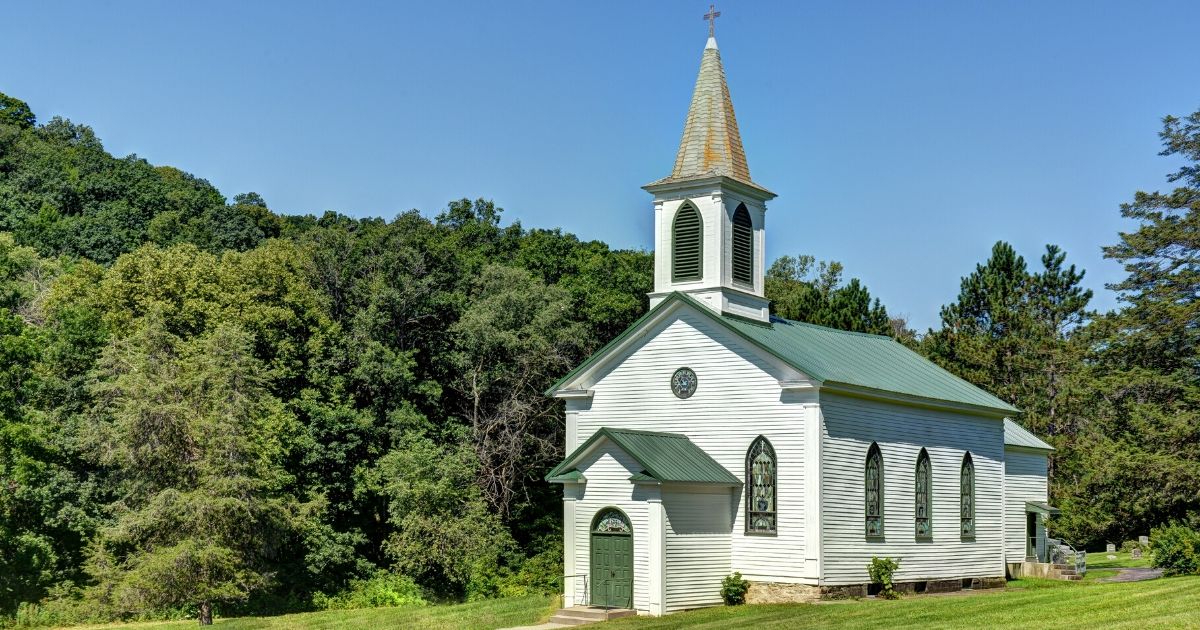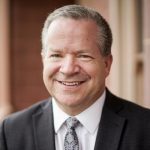
Op-Ed: We Must Never Again Let Our Freedoms Become 'Nonessential'
Nothing like a global pandemic to get you thinking about what matters most. The forced physical isolation and disruption from the “daily drill” have created solitary moments of introspection and the opportunity to define what is truly essential in our lives.
I recently interviewed best-selling author Greg McKeown for my “Therefore, What?” podcast. His book “Essentialism” is a must-read for many reasons. When I asked him for some specific applications of the principles for living as an “essentialist,” he quickly flipped it into an intervention and used me and my current schedule as clinical material to make the point.
Greg gave me a series of things to consider so that I would be able to better function at my highest, most discerning, most impactful and most authentic self. (More on that next month, as I am in the middle of a 30-day essentialism challenge. I am learning that there is a lot of nonessential stuff cluttering my time and attention.)
In the midst of this quest for what is essential, I listened to an address by Elder David A. Bednar, a member of the Quorum of the Twelve Apostles in The Church of Jesus Christ of Latter-day Saints. His keynote address was part of Brigham Young University’s three-day Religious Freedom Annual Review.
Elder Bednar is a master teacher who clears out the clutter so listeners can become learners and discover for themselves what is needful, mindful and essential. The title of his address struck me, “And When He Came to Himself,” taken from the Parable of the Prodigal Son in the New Testament. Hardly the title or approach you would expect for an address delivered for a law school on the topic of religious liberty.
In his masterful way, Elder Bednar presented an observation and then provided moments for the participants to discern the meaning on a multitude of levels.
The individual application, “coming to one’s self,” was understood quickly. The pandemic has provided many with a wake-up call to what is important and essential in their lives. Elder Bednar shared a tender conversation he once had with his aging apostolic associate, Elder Robert D. Hales.
Elder Bednar asked, “What lessons have you learned as you have grown older and been constrained by decreased physical capacity?”
Elder Hales paused for a moment and responded, “When you cannot do what you have always done, then you only do what matters most.”
That truly is a “lesson for a lifetime.” It is a lesson that actually applies to individuals, organizations, governments, communities and countries. Focus always precedes success, and focusing on only the essential accelerates success. In a surprising and powerful way, that lesson is encompassed in the protection and pursuit of religious liberty.
The first freedoms established in the First Amendment are central to the vitality and vibrancy of the American experience. First freedoms, especially the first of the first freedoms — freedom of religion — are essential.
The pandemic has caused many to review things that are essential and nonessential in nature to society. It also has undeniably demonstrated that governments are often not well suited to determine what is truly essential. In some states, the sale of alcohol, animal care and legal services were deemed essential and allowed to continue, while the work of clergy, ministering to individuals and other expressions of religion were categorized as nonessential.
Elder Bednar emphasized that “while believers and their religious organizations must be good citizens in a time of crisis, never again can we allow government officials to treat the exercise of religion as simply ‘nonessential.’ Never again must the fundamental right to worship God be trivialized below the ability to buy gasoline.”
Cautioning against the sweeping declarations that trivialize and undermine the freedom of religions, Elder Bednar stated, “We cannot deny and we should not forget the speed and intensity with which government power was used to shut down fundamental aspects of religious exercise.”
He added that “we have witnessed the government’s swift, well-intentioned, but often dangerous breaching of the boundaries that protect the free exercise of religion.”
It is only a short hop from the breaching of those boundaries of limiting religious liberty to the full suppression of other first freedoms, including the freedom of speech or of the press or the right of the people peaceably to assemble. Without citizens standing up and speaking out it can indeed be a swift and slippery slope for basic freedoms to fall from essential to nonessential.
A subtle but profound conclusion from Elder Bednar punctuated the essential religious freedom message and essential liberty the messenger possesses. “I joyfully exercise what for me, personally, is one of the greatest religious liberties. I express these thoughts in the name of Him whom I serve, whom I love, and whom I represent, even Jesus Christ.”
A failure of citizens, individually and collectively, to “come to ourselves” in such a time as this will further weaken the binding ties of our First Amendment rights and the many vital liberties they preserve. In short, allowing these freedoms to be deemed nonessential by the government will cause us to further forget who we are as a nation.
Dr. Martin Luther King Jr. understood the essential nature of all the first freedoms and the courage, character and clarity required to promote and protect them. He spent and ultimately gave his life in defense of the essential.
Dr. King said, “Courage is an inner resolution to go forward despite obstacles; Cowardice is submissive surrender to circumstances. Courage breeds creativity; Cowardice represses fear and is mastered by it. Cowardice asks the question, is it safe? Expediency asks the question, is it politic? Vanity asks the question, is it popular? But conscience asks the question, is it right?”
What is true and what is right epitomizes what is ultimately essential. From our founding up to today, all citizens must have the courage, character and clarity to pledge our lives, fortunes and sacred honor to defend precious liberties as the essence of American essentialism.
It is incumbent upon each of us to first “come to himself” or “come to herself” in remembering who we are and what is truly essential in our lives and families. Then we must collectively “come to ourselves” in remembering who we are as a country and what is truly essential to the preservation of liberty for ourselves and our posterity.
The views expressed in this opinion article are those of their author and are not necessarily either shared or endorsed by the owners of this website. If you are interested in contributing an Op-Ed to The Western Journal, you can learn about our submission guidelines and process here.
Truth and Accuracy
We are committed to truth and accuracy in all of our journalism. Read our editorial standards.
Advertise with The Western Journal and reach millions of highly engaged readers, while supporting our work. Advertise Today.












